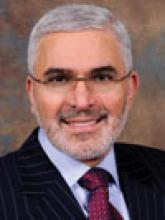As a specialty that deals with brain disorders, psychiatry is now much more integrated with other medical and surgical specialties than in the past. Psychiatry is no longer perceived as a ‘different’ discipline and has successfully embraced the medical model without abandoning its biopsychosocial principles.
But some chasms remain and several separations persist, impacting not only the image of the specialty but also psychiatrists and their mentally ill patients. Some issues need to be addressed before full integration can occur:
Geographic separation. Freestanding psychiatric hospitals completely detached from medical/surgical services perpetuate the old misconception that psychiatric disorders are different despite overwhelming scientific evidence that all mental disorders are medical brain disorders.
The same holds for outpatient care. Established about 50 years ago, community mental health centers (CMHCs) around the country operate separately from primary care clinics despite the high prevalence of general medical disorders among psychiatric patients, and the equally high prevalence of psychiatric disorders among primary care patients.
CMHCs perpetuate an old psychosocial model dominated by non-medical mental health professionals, although patients in those settings have severe brain disorders and need a comprehensive medical approach. Because function follows structure, this geographic separation inevitably contributes to the perception that psychiatric disorders are not really medical disorders but some kind of psychosocial maladaptiveness.
Financial separation. Psychiatric care has never been reimbursed on par with medical/surgical care, although all specialties, including psychiatry, diagnose and treat diseases of various body organs. The egregious injustice of this disparity (go ahead, call it discrimination) is truly shocking for the damage it has inflicted on tens of millions of psychiatric patients, their families, and their psychiatrists. Recently, parity has been pledged in federal laws, but remains a pipe dream for many, as insurance companies and businesses resist its implementation.
Organizational separation. The psychiatric/medical records of millions of patients with serious mental brain disorders are kept separate from their general medical records. This is universally true in CMHCs, which keep their own records, thus preventing collaborative care with primary care providers. This could lead to misdiagnosis, medical errors, duplicate lab tests, adverse drug-drug interactions, and lack of appropriate and timely primary care interventions. Some HMOs—where integrated care is a primary goal—still keep psychiatric records separately. The VA does a good job with unified records but access to psychiatric data is restricted. The intense confidentiality of psychiatric information compared with general medical information evokes a perception that psychiatric history and symptoms should not be accessed as is diabetes, hypertension, or cancer history. Could transparency be an antidote to the stigma of mental illness?
Cultural separation. Most people with serious psychiatric brain disorders receive care at CMHCs, where they are referred to as “clients” instead of “patients,” as though treating mental illness is a business transaction! No other medical specialty has abandoned the term “patient,” which immediately implies having a medical ailment that requires medical attention. Non-medical language contributes to an unnecessary separation from the rest of medicine.
Forensic separation. No other medical specialty has half of its patients in jails and prisons! Imagine if medical symptoms like coughing, wheezing, or vomiting lead to incarceration, as agitation or bizarre psychotic behavior frequently do. The criminalization of psychiatric disorders is an unconscionable travesty and a mark of shame on our country, which housed mentally ill individuals in state hospitals before the destructive tsunami of deinstitutionalization dismantled these facilities under the mantra of “least restrictive environment” and ironically replaced them with correctional facilities. The preponderance of legalistic intrusions into psychiatry inevitably spawned the booming subspecialty of forensic psychiatry. I don’t think there will ever be a forensic gastroenterologist or a forensic hematologist or a forensic oncologist.
So how do we eliminate those chasms and complete the full integration of psychiatry into the rest of medicine? It is not easy and it will take time, but a good start is to co-locate psychiatric care with primary care, unify medical records, achieve full insurance parity, and uphold the medical model with adjunctive psychosocial supports. A possible catalyst for this transformation would be for psychiatrists to regain their leadership roles in psychiatric health care and work under the rubric of psychiatry as a medical specialty.


